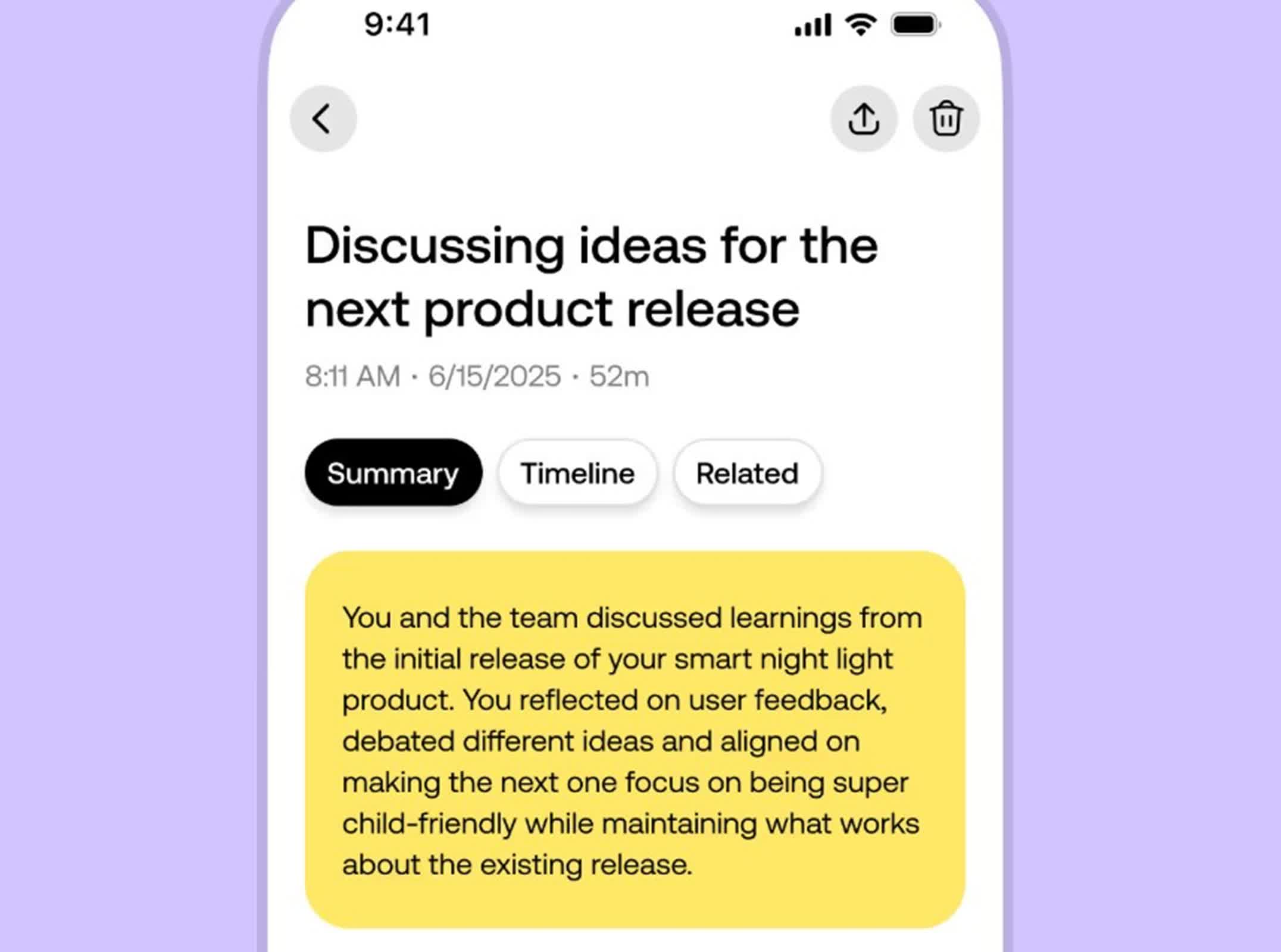What just happened? Amazon has announced that it will acquire Bee, a San Francisco-based startup known for its wearable AI device. The planned purchase signals the tech giant's renewed ambitions in what has become a crowded market for smart personal assistants.
Founded in 2022, Bee gained attention for its $50 wristband, designed not just as a fitness tracker, but also as a personal digital assistant. Unlike traditional wearables, Bee's bracelet captures and transcribes conversations around the wearer in real-time.
Using a combination of in-house and third-party AI models, the device distills discussions, reminders, and tasks into summaries available through a companion app. It operates quietly on a single charge for days and can create a searchable log of daily life, synthesizing information from communications, calendar events, and even photos if the user gives permission.
The acquisition comes at a time when major tech firms are racing to invent the next breakthrough in AI-driven consumer technology. OpenAI's recent $6.5 billion acquisition of io, another wearable AI startup, underscores the growing conviction that AI will soon transition from desktops and phones to become an integral part of the body itself.
In her announcement, Bee's CEO Maria de Lourdes Zollo described the vision of "truly personal" AI – technology that learns from the user and supports everyday life in a seamless way.

For Amazon, the deal represents a return to a product space it recently exited. In 2023, the company discontinued Halo, its health-tracking wearable, amid intensifying competition and a broader refocus on its most promising hardware projects.
Amazon officials have not disclosed the amount the company will pay for the startup, nor when the deal is expected to close. They have confirmed, however, that all Bee employees have received job offers as part of the acquisition.
Both companies emphasize that users retain control over their data: the device can be muted at any time and does not store audio by default. Privacy, a long-standing concern in the field of voice technology, has been positioned as a top priority, with Amazon promising to uphold Bee's privacy standards and add new features to give users "even greater control" over their experience.
With the recent relaunch of Alexa's AI capabilities, industry observers expect Amazon could one day integrate Bee's technology into the broader Alexa ecosystem. While similar attempts by other startups have met with mixed results, Amazon and Bee are betting that the promise of a truly proactive, personalized AI – one that remembers, reminds, and assists without constant input – will appeal to users seeking a smarter digital companion.
